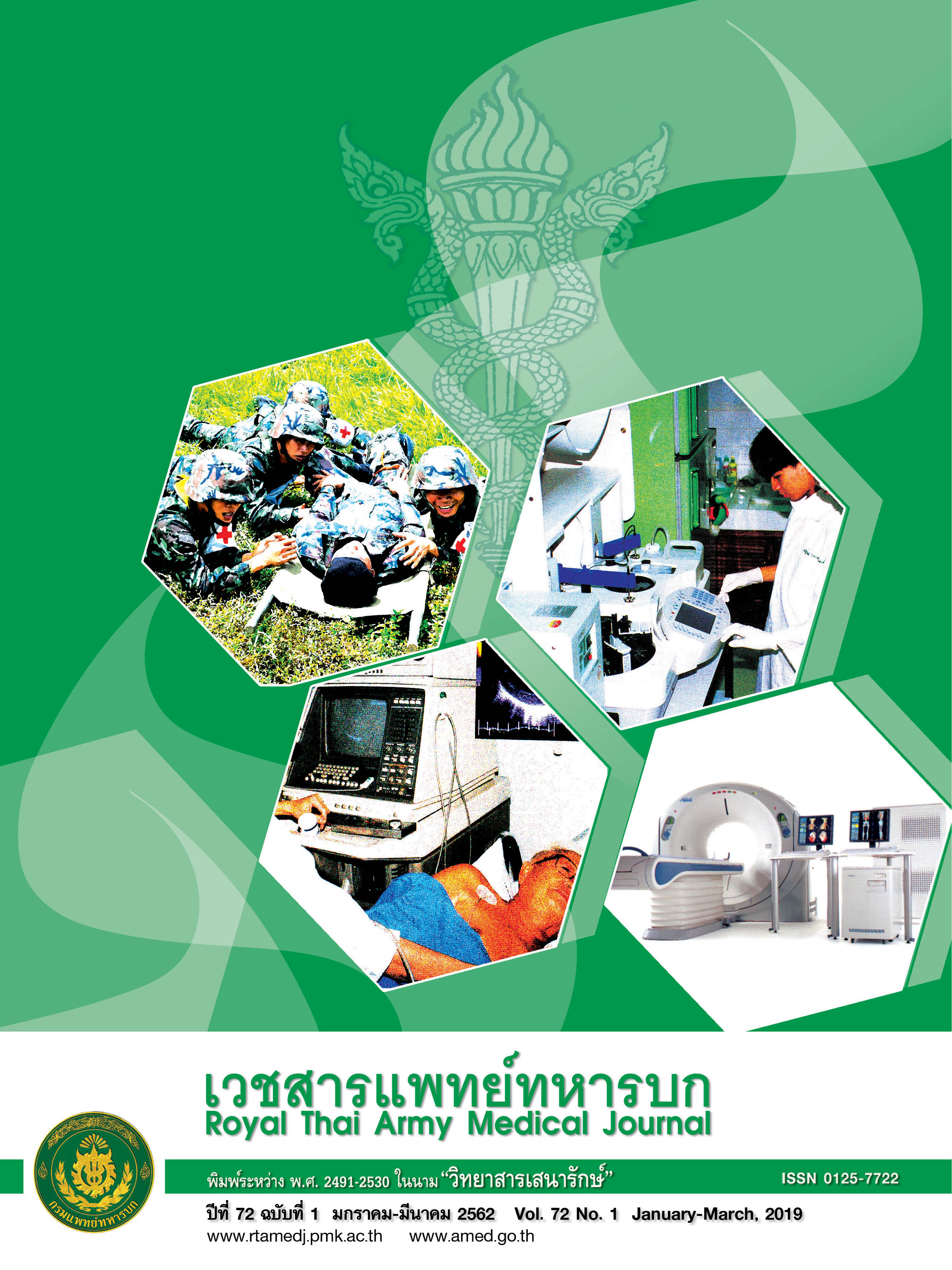Nursing care for the Oder adult with Depression: Family-centered Care
Main Article Content
Abstract
Abstract
Current situation in Thailand, the older people with depression and suicide risk are more than 75,500 people. Depression is the first health problem among female older people and the third most common health problem among older men in thailand. The highest prevalence in the northeastern and the southern, and while depression in older adult decreased prevalence continues in all areas of Thailand as well. Important issues in the caring of depression that occur with the older adult in thailand; most people lack awareness of the loss that can be caused by the operation of depressive symptoms, medical personnel pay more attention to the care of this disease than physical diseases, patient search does not cover all areas of the country, older adult entered the treatment system and lacked a follow-up for recurrence, the family members of the elderly think that depression is a mental illness that shows symptoms like insanity, madness, causing social disgust, and live in rural areas, lacking access to treatment or some people do not receive ongoing care. In fact, depression is a disease
that requires constant treatment and provides close monitoring. Only making the most involved in the family will be effective in caring for older adult with depression. Under the context of Thai society that has a strong sense of gratitude to the parents therefore believes that giving family member’s participation in all dimensions of health care will be effective for viewing the elderly with the most depression. This article aims to explain the nursing role in caring for older adult with depression by applying family-centered care concepts to allow nurses to apply for further family support.

